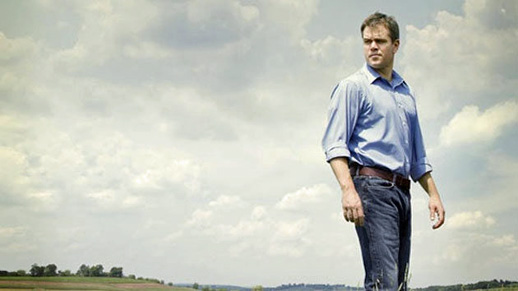
British Columbia’s New Democratic party, under the leadership of Adrian Dix, has enunciated a policy position in favour of fracking, a dangerous, environmentally unsound, and wholly unsafe natural gas extraction process.
In 2010, Josh Fox’s Gasland, a Special Jury Prize winner at Sundance, documented the health concerns of citizens affected by the fracking industry, and featured a flammable water scene which caused quite the stir.
The Huffington Post published this story last April …
“The feasibility of protecting the health of Americans while conducting hydraulic fracturing operations is debatable. Dimock, Pennsylvania has been at the heart of this discussion. The small town’s wells were tainted by fracking operations, and the drilling company and the EPA have (at times) delivered clean water to the residents. According to ProPublica, recent EPA tests of Dimock’s water reveal “dangerous quantities of methane gas” and “dozens of other contaminants, including low levels of chemicals known to cause cancer and heavy metals that exceed the agency’s “trigger level” that could lead to illness if consumed over a period of time. The EPA’s assurances suggest that the substances detected do not violate specific drinking water standards, but no such standards exist for some of the contaminants and some experts said the agency should have acknowledged that they were detected at all.”
We would imagine that should recently-nominated Vancouver-Fairview NDP candidate George Heyman be elected to government next May, that inside the NDP caucus, Mr. Heyman will emerge as a powerful voice against the destructive environmental practice. Fracking arose as an issue dividing the two candidates seeking the NDP nomination in Vancouver-Fairview. Candidate Vancouver City Councillor Geoff Meggs didn’t rock the boat …
“The party position is we will allow fracking,” Meggs explains. “I personally don’t like it. I wish we would examine and study it. But I accept that our party has taken a position on it. George [Heyman] is saying he wants to change the party’s position. And while I might prefer a different position, I’m not campaigning to have it changed.”
Meggs’ opponent in the race, George Heyman, has this to say …
“I’m not proposing that we don’t sell any gas,” says Heyman, who is currently the Executive Director of Sierra Club BC. “I am proposing that we stop the expansion of new frack wells until we have an appropriate public study on the health impacts, the community impacts, the water impacts, and the climate, greenhouse-gas-emissions impact.”
Note should be made that Heyman quite handily won the contested Vancouver-Fairview nomination. A shot across the bow to the more conservative interests in the provincial NDP, a message to the party elite that in a democracy it is the members of the party who direct policy, not the electeds divining policy from on high, ignoring the wishes of the people?
Sometimes, though, if reason fails to convince, film has the power to transform political positions, that despite all evidence to the contrary, are wrong. Film can inform, and cause a person / political party to change an enunciated — and, perhaps, not fully considered — position on an issue.
To that end, for the first time since 1997’s Good Will Hunting, actor Matt Damon and director Gus Van Sant have re-united, this time to produce a screenplay written by Damon and co-star John Krasinski, based on a story by Dave Eggers. The film Promised Land tracks the work of two corporate salespeople who visit a rural town in an attempt to buy drilling rights from the local residents, in order to commence a fracking operation — although the salespeople are not upfront about the consequences of the ‘rights’ sale by farmers — a decision that would destroy the townspeoples’ livelihoods.
Promised Land will be released in the United States in December — in New York and Los Angeles — in order to qualify for Oscar consideration. The film is set for wide release, opening in Vancouver, Friday, January 11th, 2013.
![]()
![]()
![]()
![]()
![]()
![]()
![]()
![]()
![]()


Earlier in the week, and we can’t remember how, we became aware of RebelMouse, a social media aggregator that connects your Twitter, Facebook, Instagram and other social media accounts all together on a dynamic and very graphically pleasing web page — created absolutely free-of-charge by the folks who both created and operate RebelMouse.
Ben Popper, from The Verge, writes …
Paul Berry is famous in tech and media circles as the brains behind The Huffington Post’s incredible success with social media and search engine optimization. On June 6th of this year, he took the wraps off RebelMouse, a social publishing platform that hopes to replicate that success on an individual level. “People are getting very good at Twitter and Facebook, but they are embarrassed about their personal websites,” says Berry, when we visited him recently at Soho Labs. “RebelMouse takes all the content from your social streams, and transforms it into a dynamic homepage.”
Users sign up for RebelMouse and connect it to their Twitter, Facebook, Tumblr, Pinterest and Instagram accounts, the service pulling all photos, text and links from these feeds. The page updates with each new social media post, arranging the posts in an easy-to-read format. RebelMouse also affords the user the opportunity to rearrange, edit items, or remove them entirely if that is their wish, the editing not restricted to the 140 character limit often placed on social media forums, such as Twitter.
Here is our RebelMouse page, a compendium of our recent Instagram, Facebook and Twitter feeds. Convenient, gorgeous: you may want to try it.